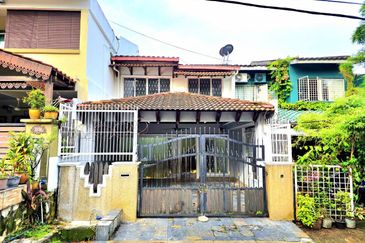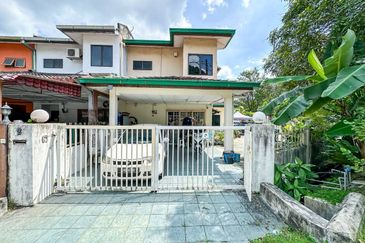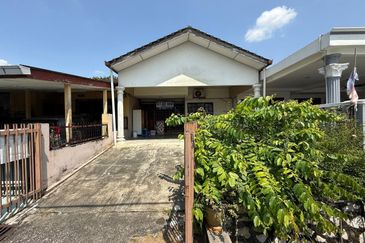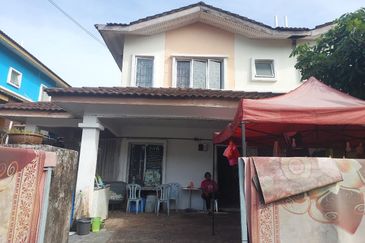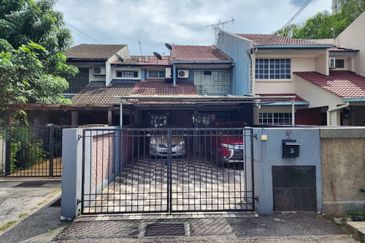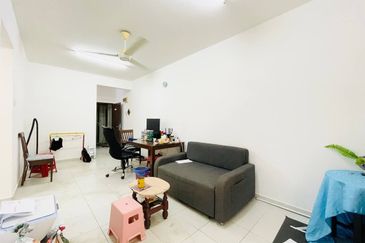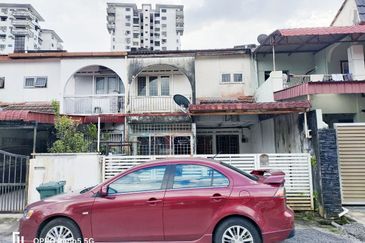
“How can I enjoy my retirement when I can’t even survive now with the Covid-19 pandemic?”
The above encapsulates the plight of many Malaysians especially the B40 and lower segment of M40 groups who are struggling to make ends meet during this economic distress caused by the Covid-19 pandemic and Movement Control Order.
Malaysia is facing an unprecedented crisis in the form of the Covid-19 global pandemic. To contain the further spread of the Covid-19, the government has announced the Movement Control Order effective March 18, 2020 and at the time of the writing of this article, the MCO has been eased into a conditional MCO from May 4 until June 9: that’s a whopping 84 days combined.
The MCO period effectively required all non-essential businesses to cease operating during the MCO period and for the rakyat to simply just “Stay At Home”. As a result, many industries and sectors had temporarily ceased operations to comply with the MCO directive. Whether they are able to ‘weather the storm’ is left to be seen. Many countries worldwide have adopted a similar approach to shut down non-essential services and asked their citizens to stay at home.
The MCO is expected to result in a recession for Malaysia in 2020 and the Government has announced various economic stimulus packages to alleviate the situation but what about the man-on-the-street and small businesses?
Many are out of jobs as a result of business shutdowns, retrenchments or terminations from their work. It is sad to see pictures of people making beelines to pawn shops all over the country. At least pawn-brokers provide a lifeline to these struggling Malaysians by giving out emergency lending with less red tape which is absolutely crucial in times like these, as compared to conventional lending.
According to the latest data from the Department of Statistics Malaysia, the unemployment rate had risen to 3.9% in March from 3.3% in February. It was reported that these were the highest rates recorded since June 2010 when it was at 3.6%. The minister in the Prime Minister’s Department in charge of economy was reported to have said that Bank Negara Malaysia had projected the unemployment figure to increase threefold to reach 1.8 million from the current 520,000. In short, times are bad and the future outlook is grim.
Resorting to EPF savings
For those with an Employees Provident Fund (EPF) account, many have resorted to the i-Lestari initiative by withdrawing their EPF savings in which the maximum withdrawal allowed is RM500 per month for a period of 12 months. It was reported that EPF has approved withdrawals totalling RM1.66 billion by 3.5 million contributors under the i-Lestari initiative launched last month. However, is RM500 per month enough to help them pay for their shelter or even feed their families? Will such pittance be sufficient to resuscitate their failing businesses?
Granted, there are other financial aids available to these EPF contributors under the PRIHATIN stimulus package, but there are many especially those in the gig economy, small-time traders, sole-proprietors or ‘mom and pop’ store owners, who are unable to get the necessary loans/funding to sustain their businesses due to excessive red tape or lack of supporting documentary proof; black listed history; no regular fixed income or those who have been served with a redundancy notice.
Allow for sufficient withdrawal of EPF monies
Unless our government introduces additional/alternative financial solutions to address all these gaps or gives out ‘free’ money from their coffers, we have to resort to ‘self-help’ and HBA is of the view that EPF contributors who need the money to keep them afloat, should be allowed to withdraw an amount that they deem sufficient for their present needs including full sum withdrawal (or a major portion) of EPF monies. Just imagine a poor 48-year-old ‘pasar malam’ trader who is in dire need of money and has got money in his EPF account but is unable to fully withdraw it as he has yet to attain retirement age. This may force him to go to ‘Ah Longs’ for quick money at an exorbitant rate of interest.
Of course, allowing for such “wholesome” withdrawals must be subject to fulfilment of certain criteria. For instance, it could be a formula based on the quantum of their last drawn salary for the duration of 6 to 12 months. Either spouse should be allowed to make withdrawal, if both were gainfully employed.
The underlying rationale is that when people do not have enough money to survive, they should be at liberty to dip into the ‘fixed deposit’ of their EPF accounts in the name of survival, especially during this unprecedented time. After the crisis is over, let’s say two or three years later, EPF can always come up with a gradual increase in the contribution rates to build up the EPF contributor’s fund again, if necessary.

In regards to indebtedness under housing loans, HBA proposes that EPF contributors who are first time house buyers be allowed to also utilise their EPF Account 1 if the monies in the EPF Account 2 is insufficient to service the monthly housing loan instalments. This provision should be allowed for the next two years so that house buyers would have more purchasing power to buy other essential items during this critical period of post Covid-19 recovery.
Extraordinary time calls for extraordinary measures
With the International Monetary Fund describing the fallout from the Covid-19 pandemic as the worst since the Great Depression, we need extraordinary rescue measures during extraordinary times. Singapore had resorted to drawing from their vast national reserves for the first time since the global financial crisis to fund their Covid-19 budget to prop up the economy. Their Finance Minister said: “This extraordinary situation calls for extraordinary measures. We have saved up for a rainy day. The Covid-19 pandemic is already a mighty storm, and is still growing.”
The Covid-19 pandemic is certainly a storm and therefore EPF contributors should be allowed greater access to their EPF savings that have been accumulated over the years, to help them weather the storm.
If we are cash-strapped and struggling to put food on the table, it serves little purpose to have any savings in our EPF account.
Such “wholesome” withdrawals should also apply to other statutory bodies/investment funds that hold considerable amount of money for their shareholders, unit holders, depositors or contributors like Kumpulan Wang Persaraan (Diperbadankan), Lembaga Tabung Haji, Lembaga Tabung Angkatan Tentera, Amanah Saham Bumiputera in order for their members to have access to their accumulated savings for much needed cash during this unprecedented time.
Datuk Chang Kim Loong is the Hon.Sec-Gen of the National House Buyers Association while Pang Saw Pin, Esq, is one of HBA’s legal advisors.
HBA is a voluntary non-government and not-for-profit organisation manned wholly by volunteers. Their link: www.hba.org.my
Stay safe. Keep updated on the latest news at www.EdgeProp.my
This story first appeared in the EdgeProp.my e-Pub on May 22, 2020. You can access back issues here.
TOP PICKS BY EDGEPROP

Bandar Baru Wangsa Maju (Seksyen 5)
Wangsa Maju, Kuala Lumpur




